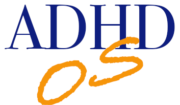
Including some thoughts on overcoming impostor syndrome as a professional.
On October 29th the threads account of simple. mindful.adhd (who I have enjoyed following). because was at a conference and they were sort of doing a play by play as they were at the conference. They ended it by saying:
“ADHD conferences are not created for people with ADHD.
If they were, there would not be hours of back to back lectures each day.Do neurotypical people like this? It’s so painful, at least to me.
Where are the wiggle seats, the interactive presentations and discussion groups, the creative approaches, the demonstrated examples of different learning styles?
I want more dynamic ADHD conferences.”
quoted with permission
Now, I want to emphasize that they are not in any way endorsing my OpenSpace. It was just interesting to me that on the same day that I was recording something about why I think OpenSpace events are better for people with ADHD is the same day that someone who’s at a regular conference (an ADHD conference no less!) commented about how the way the normal framework works is not designed for people with ADHD.
That honestly answers the first question I asked myself when I started this article, namely:
“Why are you putting on the Open Space, Gray?”
That question is a fair one. I wasn’t commissioned by any corporation, I’m not an ADHD professional (though I am a professional who has ADHD — gotta figure out that phrasing). I’m not selling any services, products, or affiliate anythings.
As I said recently in my podcast intro, I’m not any kind of expert in ADHD — except maybe in that I spent half a century not knowing I had it.
On the other hand, I can claim some expertise in Open Space events and facilitation. I ran well over 100 of them between 2007-2019, and trained people to run a dozen or so more. I traveled throughout North America and a couple of times on European tours, organizing them and then holding the space for the attendees, that ranged from 8 people to 450 people — and they all went well.
People’s lives changed at these events — not because of me, but because the events gave them the space to explore questions they couldn’t bring up anywhere else.
Yes, but why are you doing it?
There are two reasons, really:
One, since my diagnosis a little less than a year ago, ADHD has been the focus of most of my attention. Yes, it’s a bit clichéd, but anyone who has a diagnosis later in life I believe will understand. Suddenly so much of my life makes sense.
If you weren’t late-diagnosed, or don’t have ADHD, I’ll just ask you to imagine your favorite hobby or pastime — football, quilting, skydiving, whatever. Now imagine that you’d done all the things involved in that hobby — gone to games, bought jerseys, followed players — without actually knowing the game existed.
When you find out about the game, you tend to want to know as much as you can about it. Plus you suddenly understand why you were in Lambeau Field in the middle of a snowstorm.
Not the best analogy, but it’s the best I can come up with at the moment (to be fair, I came up with two other ones before that, but I decided this was the best. I remember reading somewhere that ADHD folks also have a penchant for making analogies, but I can’t find a source).
Number two is a more simple answer, and it’s best stated by a quote from Kieron Gillen, author of the graphic novel Die:
What does not exist that I want to see?
That’s really it. I’ve seen a lot of Open Space events; I now understand a lot more about ADHD and how people with it operate, as well as how it affects professional adults like myself.
I’d like to see what happens when those two things get together.
I suspect it’s going to be amazing.
Yeah, but what if it isn’t?
Well, there’s another aspect of this thing. I thought I knew exactly where my recurring negative self-talk comes from — a particularly strong influence during my childhood. It’s likely that there’s some ways it was exacerbated by certain ADHD traits — rejection sensitivity disorder and echolalia turn it into a cross between a schoolyard bully and an earworm.
But about age sixteen I learned how to ignore it.
Not through the means they usually prescribe. No affirmations, no positive psychology. Even the good old “Is it true?” question that tries to logic away self-doubt and paranoia doesn’t really work.
I know that I have been proven wrong so many times, that the best I can ever answer to that is “Well, probably not, but maybe.”
But there’s another step to that which has let me do many things that I would not otherwise have dared. Things that I’m proud of accomplishing, and things I’m proud of just having tried, even if they didn’t make me a millionaire.
When that voice comes into my head saying What if no one comes to the Open Space? What if no one likes it? What if you fail, for the first time, to hold a space where people can share their passions and concerns and ideas?
The answer is simple: So what? At least I tried.
It’s not “do or do not.” It’s “Yeah? And so what?”
We’re having an ADHD open space for professionals with ADHD and those around them. I’m 99% sure it’s going to be awesome.
But either way — I can’t wait to find out. I hope you feel that way too.
